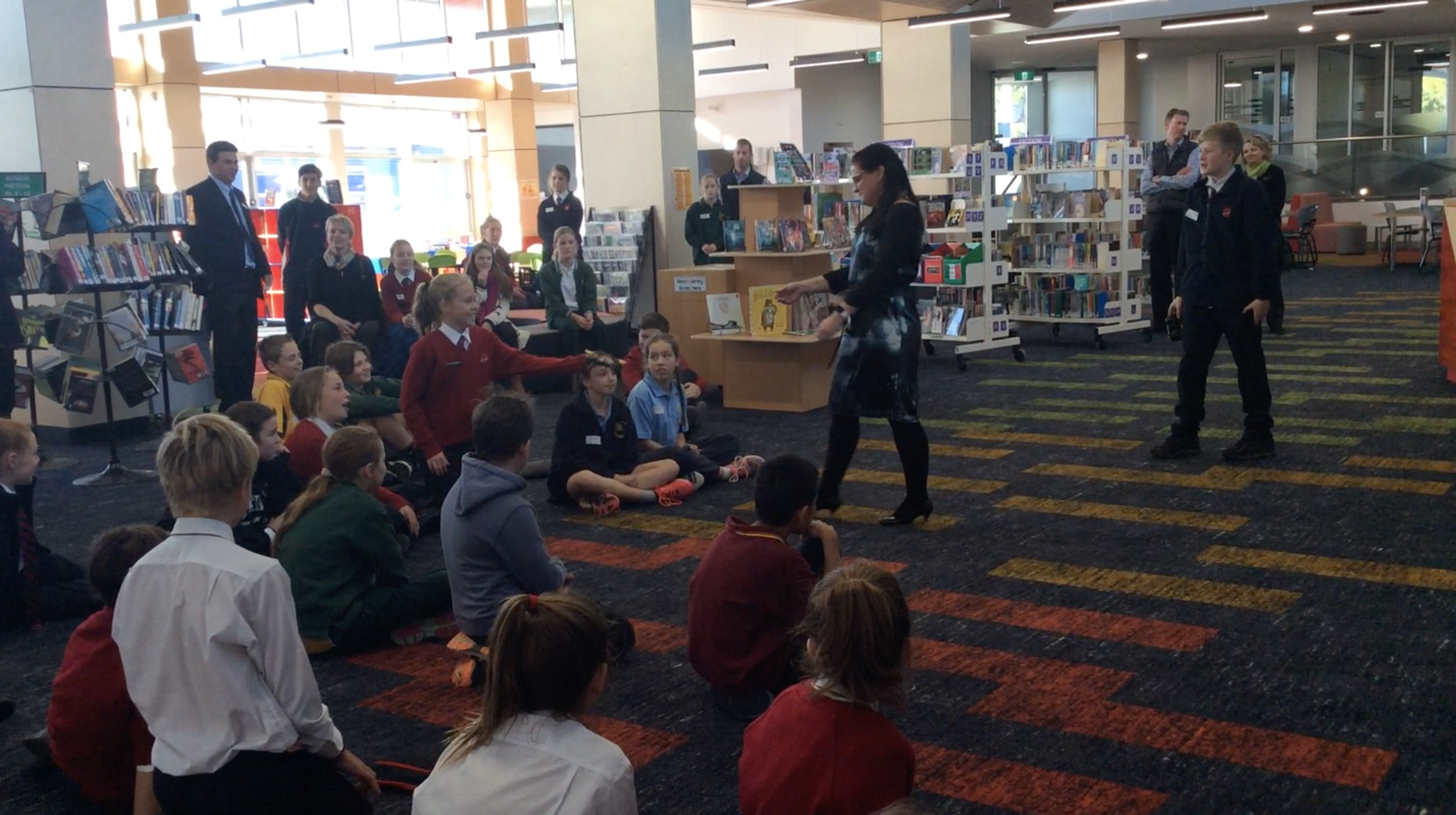From our Principal

21st Century Knowledge Economy
Getting from ‘here’ to ‘there’ via the iGeneration
In education, we always need to look to the future – especially to the tools that will assist us with teaching and learning. At Moama Anglican Grammar, our goal continues to be providing personalised learning and skills for deep thinking for our students. Technology has always been an essential tool for achieving this goal, and can have a significant impact on student outcomes when used well in schools.
Mobile, robotic, virtual reality and artificial intelligence technology has advanced rapidly in recent years, and a range of devices in these areas are increasingly being applied to education. The tablet devices and the apps that go with them are providing schools with a new level of portability and accessibility. Robotics and drones have crept into our lives quietly and soon will be commonplace. In the last twelve to eighteen months, this area of the education market has grown considerably.
From kindergarten onward, today’s students are engaging with technology in ways we have not seen before. They have different attitudes and aptitudes to their parents, and even to their older siblings. Members of the iGeneration are characterised by their relaxed, confident, ambitious and optimistic tech-savvy approach. Their outlook is highlighted by the ability to multitask, along with a firm belief that ICT devices are not just technology but a part of everyday life! This generation needs schools to recognise this vital change in how they conduct their lives and seek to contribute to the world.
The iGeneration requires a skill set that includes critical thinking, problem solving, social networking, collaboration, effective oral and written communication, analysis, and creative imagination. As these skills can only be developed through innovative teaching and learning, it is vital that our classes are varied, independent, collaborative, research and project-based, outcome-driven, filled with active learning, and student-centred. Only highly personalised learning environments, which include multimodal access to differing levels of instruction, will empower students to drive their own learning. At our school, we see it as imperative that our students have their own reasons to learn.
Given that the ubiquitous nature of technology connects students to anywhere and anyone in the world, globalisation of learning is also key. Connecting students to international projects and/or groups in Italy, India and Indonesia for example, in areas ranging from social service to sustainability, will give them the inclusivity and diversity they require.
The 4 Cs – There’s an app for that!
Critical thinking is a disciplined process that needs to be developed throughout a person’s life. It involves the skills of conceptualisation, analysis and synthesis, as well as evaluation, reflection and reasoning. Rather than being limited to one particular subject area, critical thinking is interwoven within many modes of thought – including scientific, mathematical, historical, philosophical, economic and moral. The development of critical thinking at Moama Anglican Grammar is based on the depth of experiences provided both within and outside of our classrooms and enhanced using visible thinking routines.
ICT is an effective tool for enhancing critical thinking. It adds richness to traditional content through a multisensory approach, enables open access to a very wide variety of information, empowers students to direct their own learning, and offers opportunities for collaborative blended learning.
All students have a substantive creative ability, which is demonstrated extensively in childhood through imaginative play. When used in classrooms, the multitude of devices/apps available provide students with virtually endless audio, visual and data representation possibilities that are only a swipe away. This array of choice ignites students’ natural curiosity, assisting their development of adaptability and problem-solving skills. With increased motivation, students become liberated to think more, “out of the box”, and grasp the intrinsic value in their set tasks. By opening, the parameters for learning in these ways student’s get the opportunity to exercise their mental playfulness and intuition.
The potential for communication and collaboration within the classroom has been greatly enhanced by the intelligent use of ICT in schools. New applications of technology are helping students communicate effectively across a range of media; they are then able to assess the impact of each communication medium. By using ICT intentionally in the classroom, students gain the necessary skills they will need to communicate in their lives beyond school in a diverse range of tertiary and work environments.
Recent research shows that to prepare students for the 21st century’s knowledge economy, schools must provide students with purposeful and structured access to ICT that increases their level of participation, engagement and achievement. Research carried out by the Department of Education and Early Childhood Development (DEECD), for example, found that integrating mobile devices into classrooms:
- increased independent and self-initiated learning among students
- increased student motivation and active engagement in learning
- improved student learning outcomes
- extended students’ learning beyond the classroom
- improved teachers’ capacity to plan for and meet individual student needs
- Improved parental engagement in learning and strengthening home–school links.
When supported by quality teaching, the purposeful use of ICT in schools ‘can significantly enhance teaching and learning outcomes within and beyond the classroom.
Reshaping our educational offerings to prepare our students, the iGeneration, for the 21st century’s unique challenges and opportunities will ensure they are a step ahead!
Honoris et Excellentia
Teresa Deshon
